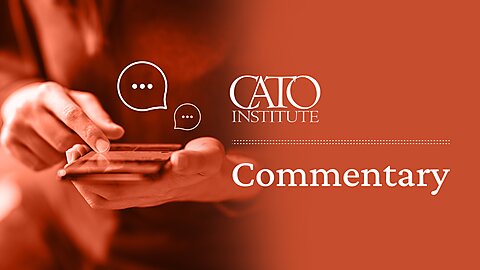Adam N. Michel and Joshua Loucks
About 5 million taxpayers pay, on average, $6 million in penalties each year for spending their retirement savings earlier than the government prescribed. These penalties make lower-income Americans financially worse off and discourage others from saving at all.
Universal savings accounts (USAs) fix this problem. They would give more Americans access to a savings system that protects their investments from multiple layers of tax without punishing them for needing to access their funds on their own timeline.
Benefits, Costs, and Complexity of Current System
The US tax system levies income and payroll taxes on worker’s wages. If any income is saved and invested, the increase in value is taxed again by levies on interest, capital gains, dividends, business income, and transfers at death. Each of these taxes reduces the market’s incentive to save. Qualified savings accounts limit this built-in bias against saving by removing individual-level taxes on investment.
Over half of nonretired adults protect their savings from double taxation by investing through qualified accounts—employer-administered 401(k) retirement accounts, Individual Retirement Accounts (IRAs), and 529 Plan education savings accounts. Taxpayers can contribute tax-deferred income (traditional accounts) or after-tax income (Roth accounts) without any other taxes owed. However, Congress decided that access to qualified accounts should be conditioned on saving for specific purposes. The most widely used accounts are for retirement and come with a 10 percent tax penalty for accessing the savings before age 59.5. A similar penalty applies to improper use of funds from other accounts.
For many young and low-income Americans, the limits discourage them from using the accounts at all. Americans who use these accounts and then have to access their money early for a family emergency or job loss face new layers of taxes. Many low-income workers are automatically enrolled in these programs by their employers, following government incentives or mandates.
Money deposited in qualified accounts cannot be used flexibly based on an individual’s or their family’s immediate needs. If someone cannot confidently commit to leaving their savings untouched until the government-designated time, it may be wiser for them to avoid using a qualified account altogether.
IRS data show that for the lowest-income taxpayers, penalties for improper use of retirement savings make up a significant portion of their tax liability. Using an average from tax years 2017–2019, Figure 1 shows that 43 percent of all taxes paid by taxpayers with adjusted gross income (AGI) below $5,000 went to penalties for accessing their own money. About 19 percent of income taxes paid by taxpayers with AGI less than $25,000 went to penalties on qualified accounts.
A Government Accountability Office report also finds that the lowest-income households have the highest rates of early withdrawals. For example, 12 percent of households with incomes less than $25,000 faced the 10 percent tax penalty for early withdrawal, and an additional 9 percent qualified for “hardship” withdrawal exemptions. The hardship exemption requires both IRS documentation and employer approval, demonstrating “immediate and heavy financial need” that can’t be “reasonably obtained” from another source.
IRS data also show that taxpayers with AGI under $50,000 pay tax penalties on early withdrawals that are about 2 percent of their total AGI.
Congress’ emphasis on retirement-specific savings doesn’t benefit all taxpayers. Single filers earning less than $47,000—the threshold for capital gains taxes—receive no capital gains tax advantage from qualified savings accounts (although they do benefit from interest income protections). By saving in a retirement account, many low-income Americans face only penalties and no capital gains tax benefit.
Andrew Biggs also explains how low-income earners “who are automatically enrolled in a retirement plan may offset their new retirement savings by increasing their borrowing and debt. As a result, net increases in household net worths may be substantially lower than gross increases in retirement savings.”
Adding More Flexible Savings Options
The ideal tax system would allow unlimited savings and investment without any penalties or second layers of tax on gains from income that has already been taxed. USAs are a more targeted way to mitigate the worst effects of the existing system for most taxpayers.
Congress has historically (albeit temporarily) loosened the restrictions on qualified accounts during economic crises, for example, by expanding eligibility for penalty-free withdrawals during the COVID-19 pandemic, the financial crisis, and many natural disasters. Most recently, in the bipartisan Setting Every Community Up for Retirement Enhancement 2.0 Act, Congress added the ability to roll over unused 529 savings into an IRA account and established an employer-linked emergency savings account. However, these limited exemptions remain highly complex, with numerous rules that discourage use.
Through these changes, Congress has acknowledged the burden early withdrawal can place on taxpayers. The next logical step is to create universal savings accounts that would function similarly to retirement accounts—income saved in these accounts would only be taxed once but without restrictions on who can contribute, on what the funds can be used for, or when they can be spent. They would be fully owned by individuals and not tied to a specific employer. Removing the tax penalty on all savers is a simple and important step to reduce the tax burden on all Americans, especially those with lower incomes.
Representative Diana Harshbarger (R‑TN-01) recently introduced a bill to establish USAs. Similar flexible savings and investment accounts have been widely used and are popular in Canada and the United Kingdom, where they increased personal savings for young and lower-income individuals.
USAs achieve bipartisan goals of increasing personal savings while reducing the complex and costly penalties on Americans accessing their own money when they need it most.

